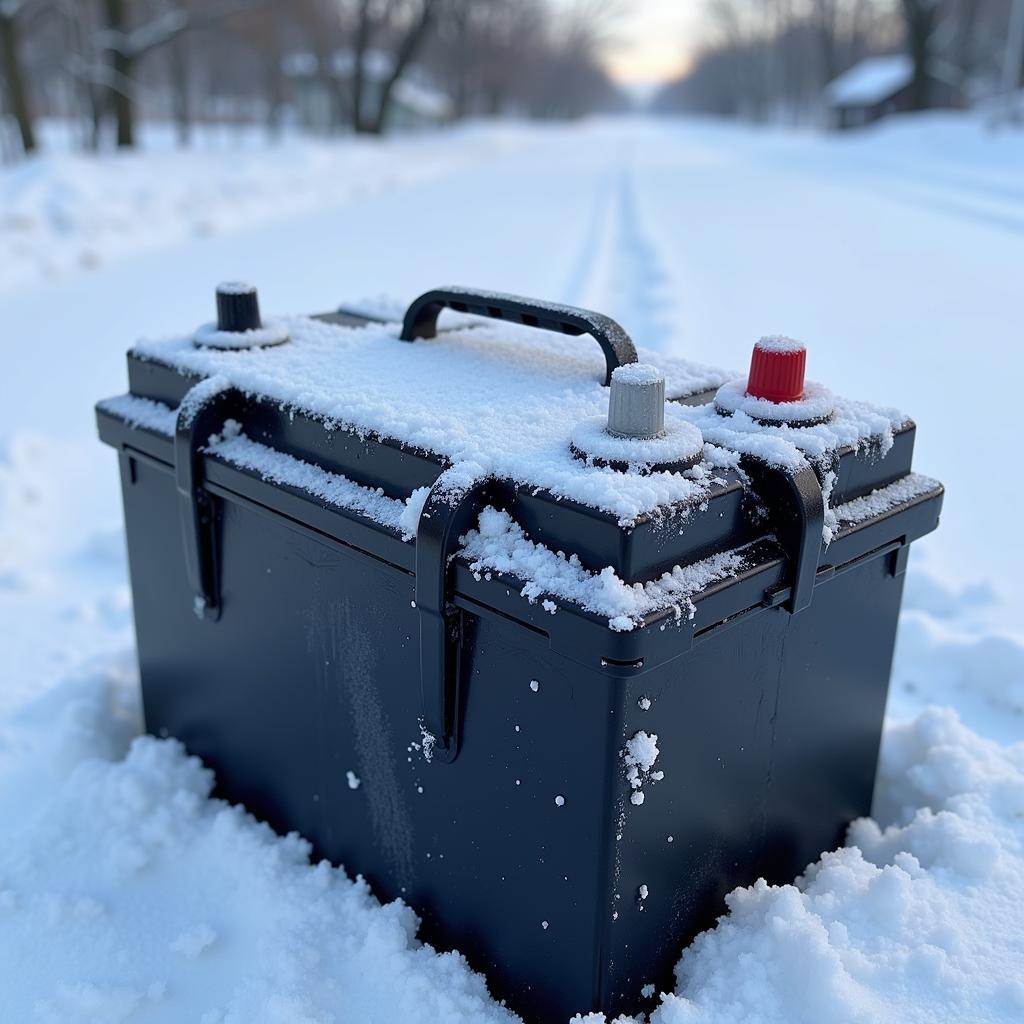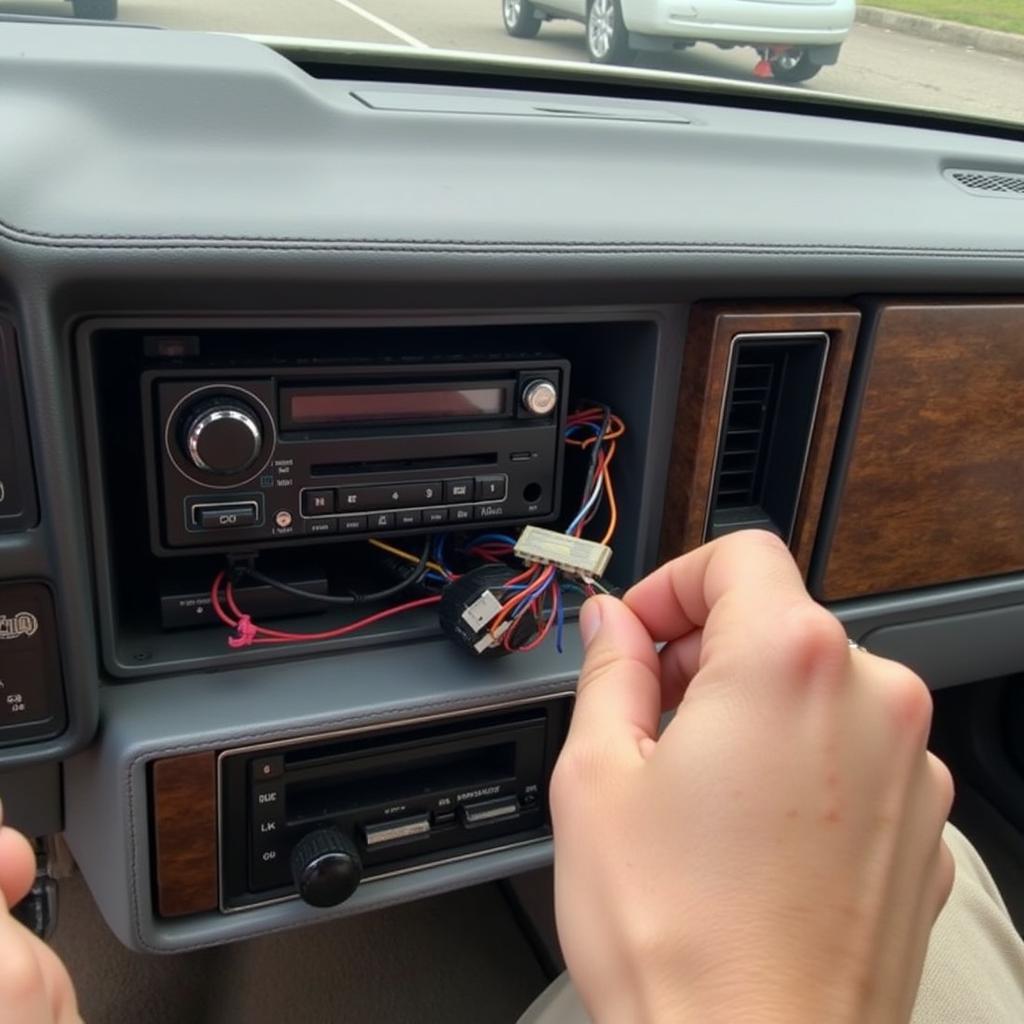A dead car battery is frustrating, especially when it keeps happening. If you’re constantly asking yourself, “Why does my car battery keep dying?”, this article will provide you with a comprehensive guide to diagnosing and fixing the problem. We’ll explore common causes, from parasitic draws to faulty alternators, and offer practical solutions to help you get back on the road.
Common Culprits Behind a Dying Car Battery
There are numerous reasons why your car battery might be giving up the ghost. Let’s delve into some of the most frequent offenders.
Parasitic Drain: The Silent Battery Killer
One of the most insidious causes of a dying battery is a parasitic drain. This occurs when an electrical component continues to draw power even when the car is off. This could be anything from a faulty interior light to a malfunctioning radio. Identifying and eliminating these drains is crucial to preventing your battery from dying prematurely.
Alternator Issues: Not Charging Properly
The alternator is responsible for recharging the battery while the engine is running. If it’s not functioning correctly, your battery won’t receive the necessary charge, eventually leading to a dead battery. Symptoms of a faulty alternator include dimming headlights and flickering dashboard lights.
Extreme Temperatures: Affecting Battery Performance
Extreme temperatures, both hot and cold, can significantly impact battery performance. Heat can accelerate the chemical reactions within the battery, leading to faster discharge. Cold weather can thicken the battery’s electrolyte, making it harder for the battery to provide power.
 Car Battery in Cold Weather
Car Battery in Cold Weather
Old Age: Batteries Don’t Last Forever
Like any other component, car batteries have a limited lifespan. Typically, they last between three to five years. If your battery is approaching or exceeding this timeframe, it’s likely the cause of your recurring problem and needs replacement.
Human Error: Lights Left On, Short Trips
Sometimes, the simplest explanations are the most likely. Leaving your headlights or interior lights on overnight can easily drain your battery. Similarly, frequently taking short trips without giving the alternator enough time to recharge the battery can also contribute to its demise.
Diagnosing and Fixing the Problem
Now that we’ve explored the potential causes, let’s discuss how to diagnose and fix the issue.
Checking for Parasitic Drains
You can check for parasitic drains using a multimeter. Disconnect the negative battery cable and connect the multimeter in series between the cable and the battery terminal. A reading above 50 milliamps indicates a potential parasitic drain. You can then systematically remove fuses to identify the culprit circuit.
Testing the Alternator
A simple test for your alternator involves starting the car and then disconnecting the positive battery cable. If the car stalls, it suggests a faulty alternator. You may find it helpful to visit a mechanic for a more thorough alternator check using a dedicated testing tool.
Addressing Temperature Extremes
Protecting your battery from temperature extremes can prolong its life. Parking your car in a garage during extreme weather can help mitigate the effects of heat and cold. Consider using a battery blanket in very cold climates to help maintain optimal battery temperature.
Conclusion
A constantly dying car battery can be a significant inconvenience. By understanding the “reasons my car battery keeps dying,” you can effectively diagnose and fix the issue, saving yourself time, money, and frustration. Remember to check for parasitic drains, test your alternator, consider the impact of temperature extremes, and be mindful of your driving habits. A little preventive maintenance can go a long way in keeping your car battery healthy and reliable. You might also find these resources helpful: 2015 ford edge key fob battery replacement, ford f150 key fob replacement cost.
FAQs
-
How often should I replace my car battery? Generally, car batteries last between three and five years.
-
What are the signs of a bad alternator? Dimming headlights, flickering dashboard lights, and a dead battery are common signs of a bad alternator.
-
Can a parasitic drain completely drain my battery? Yes, a significant parasitic drain can completely drain your battery overnight. ford f150 key fob replacement.
-
How can I prevent my car battery from dying in cold weather? Parking in a garage and using a battery blanket can help protect your battery from extreme cold. 2019 ford escape key fob battery replacement might be a good idea for some newer vehicles as well.
-
Is it safe to jump-start my car? Yes, it’s generally safe to jump-start a car, but it’s essential to follow the proper procedure.
-
What should I do if my car battery keeps dying after replacing it? If your new battery keeps dying, there’s likely an underlying issue like a parasitic drain or a faulty alternator that needs to be addressed. 2018 ford explorer key fob battery replacement might be a relevant resource for certain vehicles.
-
Can driving habits affect battery life? Yes, frequently taking short trips without allowing the alternator to fully recharge the battery can shorten its lifespan.

